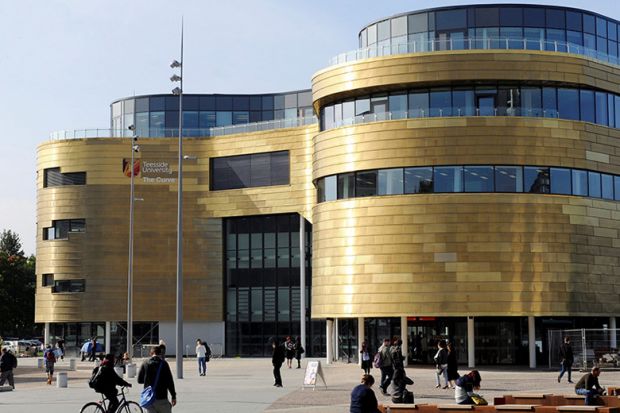Pick up any university strategic plan, or read any university website, and you will usually find commitments to "excellence" under the broad banners of teaching and learning, research and innovation, and business and enterprise.
I would say that business and enterprise support is still perhaps the lesser known of these "services" to the outside world. However, particularly at universities such as Teesside, which already has a strong foundation and reputation for business engagement, this is something we are all striving to do more of and get even better at. It will also become even more important as we digest and respond to the implications of the EU referendum outcome and seek to diversify business and enterprise income.
Since joining Teesside University at the start of this academic year, I have spent much of my time out and about, talking to businesses to discover what they want and need. Just as I arrived in my new role, the Tees Valley suffered a massive economic blow with the closure of the SSI steelworks plant, leading to the loss of 3,000 jobs. The closure of the coke ovens and blast furnace means the end of steel production at the 98-year-old Redcar works.
I can’t think of another example of an area being hit so hard economically, and where the role of the town’s university is now so crucial going forward.
It really puts under the spotlight the role and responsibilities of a university in helping to revive an area after the closure of its main industry. As universities, we all talk about business support, or business engagement, but when the question comes up around "well, what do we do now?" we have an obligation to step up.
The publication of Lord’s Heseltine report, Tees Valley: Opportunity Unlimited, is a useful handrail and spells out a number of recommendations for the future. Speaking as a "North East girl", I think the real value of Lord Heseltine’s report is that it has brought to the attention of the rest of the UK and beyond what those of us who live here already know – that there is some outstanding innovation going on in the Tees Valley, not least here at Teesside University.
We now need to refocus, diversify and respond to the vast opportunities to make the Tees Valley a destination of choice.
I’ve already taken my place on the shadow board of the South Tees Development Corporation with local authority leaders and local business people. It’s vital that we have a seat at the top table; this is where universities should be.
We want to play a leading role in the strategic response to ensure successful delivery of the education and skills piece. We want and need to have a strategic and focused conversation with schools, further education colleges and the business community about what this region is going to look like in 20 years’ time and therefore what skills are required so we can better understand our respective roles in raising the aspiration, ambition and abilities of the people in our region.
We need to make sure that we as a university are engaged with business to understand the realities, making accessible our research to help drive innovation and delivering the higher skills required in growing areas such as ICT and digital, advanced manufacturing, biotech and health through our undergraduate and postgraduate provision, our new degree apprenticeships and through our expertise in workforce development.
We will also need to make sure that we are working closely with our feeder education institutions to ensure they are supported in their missions.
I’m very clear that we have to take the initiative. It’s for us as a university to take the bull by the horns – and this is a big bull, make no mistake about that – but this is the role and responsibility of a university in its contribution to the region and beyond. Currently, approximately 60 per cent of our students come from the Tees Valley, so not only are we are perfectly placed to respond, we have an obligation to drive the strategic agenda and collaborate to secure the economic wealth, aspiration and prosperity of the region.
I am keen to change perceptions that what a university brings to the table around the education and skills piece is a list of courses, because we are all so much more than that. Our expertise in genuine business engagement and research and innovation will directly support the specific areas and growth sectors highlighted by Lord Heseltine, and we are very excited by the role we will play in that. And because we are already working with partners nationally and internationally we must and will also bring those world-leading business insights and contacts back into the region.
Professor Jane Turner is pro-vice-chancellor for enterprise and business engagement at Teesside University
Register to continue
Why register?
- Registration is free and only takes a moment
- Once registered, you can read 3 articles a month
- Sign up for our newsletter
Subscribe
Or subscribe for unlimited access to:
- Unlimited access to news, views, insights & reviews
- Digital editions
- Digital access to THE’s university and college rankings analysis
Already registered or a current subscriber? Login






